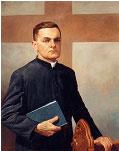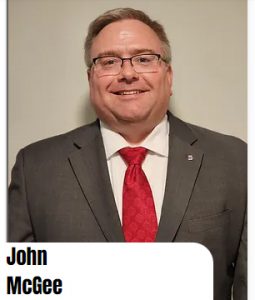About the Knights of Columbus

Venerable Father Michael J. McGivney
The Knights of Columbus is the world’s largest lay Catholic organization, with more than 1.8 million members around the world. The order was founded 130 years ago in 1882 by Venerable Father Michael J. McGivney at St. Mary’s Church in New Haven, Connecticut. The original intent to provide welfare and security for families during times of sickness and death has grown so that last year, Knights donated more than 70 million hours of volunteer time and $158 million to charity. The order is currently headed by Supreme Knight Carl A. Anderson.
The first council to be instituted in Iowa was Council 510 in Dubuque on Sunday, April 29, 1900. Later that year Davenport Council 532 was started on September 30, 1900. The Knights of Columbus spread across the state of Iowa and steadily grew to more than 31,000 members in over 200 local councils. Brother Knights undertake numerous works of Charity, Unity, Fraternity and Patriotism in their communities & parishes. Fr. McGivney’s dream of having a council in every parish is close to becoming a reality in Iowa.
The Iowa Knights of Columbus:The Iowa Jurisdiction is under the direction of State Deputy John McGee, Perry, IA
The State Deputy is the CEO of the State Council. He presides over all meetings, makes all appointments, and gives direction to the entire state staff. He is the primary representative of the Supreme Knight within the state, and serves as a permanent member of the Supreme Council.
( Contact email statedeputy@iowakofc.org ) Who is the chief executive officer and representative of the supreme knight for the Order in Iowa. The Knights work on a broad range of projects for their Church, Community, Council, Family and Youth. Membership in the Knights of Columbus is available to all practicing Catholic men 18 or older.
representative of the supreme knight for the Order in Iowa. The Knights work on a broad range of projects for their Church, Community, Council, Family and Youth. Membership in the Knights of Columbus is available to all practicing Catholic men 18 or older.
- Promote Respect for Human Life in all its stages
- Support their pastors and their parishes in the work of the Church
- Support our military personnel here and abroad
- Donate to local charities supporting persons with intellectual disabilities
- Volunteer in their communities in a variety of charitable ways
- Offer their members vital insurance benefits
- Offer their members opportunities for fraternity
